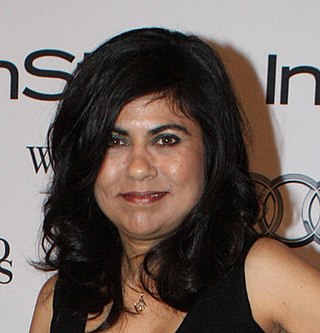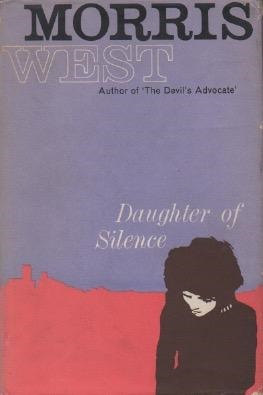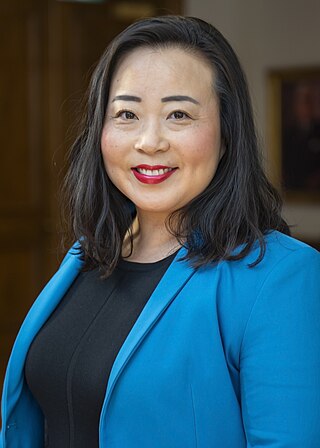
The Australian Institute of Sport (AIS) is a high performance sports training institution in Australia. The institute's 66-hectare (163-acre) headquarters were opened in 1981 and are situated in the northern suburb of Bruce, Canberra. The AIS is a division of the Australian Sports Commission (ASC), part of the Australian Government under the Department of Health and Aged Care.
The Miles Franklin Literary Award is an annual literary prize awarded to "a novel which is of the highest literary merit and presents Australian life in any of its phases". The award was set up according to the will of Miles Franklin (1879–1954), who is best known for writing the Australian classic My Brilliant Career (1901). She bequeathed her estate to fund this award. As of 2016, the award is valued at A$60,000.

Marion Mahony Griffin was an American architect and artist. She was one of the first licensed female architects in the world, and is considered an original member of the Prairie School. Her work in the United States developed and expanded the American Prairie School, and her work in India and Australia reflected Prairie School ideals of indigenous landscape and materials in the newly formed democracies. The scholar Debora Wood stated that Griffin "did the drawings people think of when they think of Frank Lloyd Wright ." According to architecture critic, Reyner Banham, Griffin was "America’s first woman architect who needed no apology in a world of men."

Leah Maree Purcell is an Aboriginal Australian stage and film actress, playwright, film director, and novelist. She made her film debut in 1999, appearing in Paul Fenech's Somewhere in the Darkness, which led to roles in films, such as Lantana (2001), Somersault (2004), The Proposition (2005) and Jindabyne (2006).

Jennifer Lilian Cashmore was an Australian politician. She was a Liberal Party member of the South Australian House of Assembly between 1977 and 1993, representing the eastern suburbs seat of Coles. Cashmore was the third woman to be elected to the House of Assembly.
Mena Ivy Bright Calthorpe (1905–1996) was an Australian writer, who was once short listed for the Miles Franklin Award.

Patrick Brammall is an Australian actor and writer. He is best known for his roles as Sean Moody in the ABC comedy A Moody Christmas; as Leo Taylor in Series 5 of Channel Ten's Offspring; and as Sergeant James Hayes in the ABC series Glitch. Alongside his wife Harriet Dyer, he is the co-creator, co-writer, and co-star of the comedy series Colin from Accounts (2022). He stars in the TV Series Evil (2019-) as Andy Bouchard, Kristen's husband, father of their daughters and a professional climbing guide.
Joyce Alice Brown is a former Australia netball international and national team head coach. Brown captained Australia at the inaugural 1963 World Netball Championships, winning a gold medal. She later coached Australia at the 1975, 1983 and 1991 World Netball Championships and at the 1993 World Games, guiding the team to four gold medals. Brown never lost a World Netball Championship match, either as a player or coach. In 1992 she was awarded the Medal of the Order of Australia. Between 1999 and 2002, Brown served as head coach of Melbourne Phoenix in the Commonwealth Bank Trophy league, leading them to the premiership in 2000 and 2002. Brown also served as a netball umpire and sports administrator.

Mackenzie Elizabeth Arnold is an Australian professional soccer player. She plays as a goalkeeper for National Women's Soccer League club Portland Thorns FC, and for the Matildas, Australia's national women's team. She previously played for West Ham United in England's Women's Super League as well as Brisbane Roar, Perth Glory, Western Sydney Wanderers, and Canberra United in Australia's W-League and Arna-Bjørnar in Norway's Toppserien.

Veena Sahajwalla is an inventor and Professor of Materials Science in the Faculty of Science at UNSW Australia. She is the Director of the UNSW SM@RT Centre for Sustainable Materials Research and Technology and an Australian Research Council Laureate Fellow.
Patricia Mary Byson Flower was an English Australian writer of plays, television plays and novels.
This article presents a list of the historical events and publications of Australian literature during 1961.

Daughter of Silence (1961) is a crime novel by Australian author Morris West.
This article presents a list of the historical events and publications of Australian literature during 1969.

Elizabeth Lee is an Australian politician. She has been a member of the Liberal Party and serves in the Australian Capital Territory Legislative Assembly since 2016, representing the electorate of Kurrajong. Before entering the ACT Legislative Assembly, Elizabeth had a successful career as a lawyer in the private sector. Later, she became a lecturer at the Australian National University and University of Canberra.

Kim Rubenstein is an Australian legal scholar, lawyer and political candidate. She is a professor at the University of Canberra.
Gwen Kelly was an award-winning Australian novelist, short story writer and poet, whose fourth novel, Always Afternoon, was made into a television mini-series in 1988. She was considered by some to be one of the "major Australian writers", whose novels are "an intimate chronicling of women's lives and of our yesterdays", "probing stereotypical Australian attitudes and behaviour".
This article presents a list of the historical events and publications of Australian literature during 1989.
This article presents a list of the historical events and publications of Australian literature during 1996.
Lyndall Hadow (1903–1976) was a Western Australian short story writer and journalist. The Lyndall Hadow Annual Award for Short Stories was created by the Fellowship of Australian Writers Western Australia (FAWWA) in 1977 to honour her.










